Good to Know: Cold Weather Won't Make You Sick This Winter, But This Might

This time of year, carols of coughing and sneezing get more airplay than "White Christmas" and that one little song by Mariah Carey. Beautifully harmonized, may we add, by that soul-sucking sound of mucus-drenched sniffles and hacked-up phlegm. (Did we just make you lose your appetite for sugar cookies? Our sincerest apologies.) The point: While wintertime invites a deluge of merriment accented by all things cozy and comforting, it also brings tidings of sickness and all-around cruddiness—an annoying and ill-timed combination to say the least. (I'll never forget the one year I was so sick over Thanksgiving I couldn't eat anything. I still feel cheated.)
But what exactly is it that makes wintertime the prime time for catching whatever it is circling your (or your loved ones') office? Many just as soon correlate the bone-dry, chilly temperatures with the cold-and-flu season, but as it turns out, colder temperatures, independently speaking, have absolutely nothing to do with the tickle in your throat. Thrown? We were too until we asked Mia Finkelston, a board-certified family physician who treats patients via LiveHealth Online, to decode the prevalence of wintertime sickness. Does cold weather actually make you sick? We investigate what you need to know below. Keep scrolling.
So Why Is Everyone Sick Right Now?
As we said, cold temperatures alone don't precipitate sickness, but what we collectively do as a human race in reaction to shiver-inducing temperatures does. For instance, while we're all for winter sporting, we tend to huddle indoors and share close quarters far more often this time of year than we do in the summertime. Thus, we're far more likely to be exposed to other people's germs. (Because yes, germs are what make you sick, folks.)
"If you are sick, stay home from work and away from public places," Finkelston advises. "Also, if you are well, avoid sick people! You're not being rude; you're being cautious. You may also be using more public transportation this time of year to travel for the holidays, and airplanes, buses, and trains are often covered with other peoples' germs."
That said, unlike us, certain viruses love the cold and actually thrive in cooler temperatures. Therefore, we quickly become more susceptible to strains of sickness we wouldn't be exposed to sans frigid environment.
"It is important to remember that germs are what cause sickness, not cold weather. However,
rhinoviruses, which cause common colds and influenza viruses (which cause the flu), tend to thrive in colder temperatures," explains Finkelston. For this reason, we might be more likely to get sick in the wintertime, and there is some additional evidence, she tells us, correlating colder temperatures with weakened immune systems, which, you guessed it, increases our chances of catching germs.
Tips to Beat Wintertime Sickness
Sometimes getting sick is inevitable and even being on your best, most vigilant behavior results in a solid three-day quarantine of bed, hot tea, pho, and Friends. But according to Finkelston (and as your mom probably extolled over and over again when you were younger), certain habits will bolster your immune system and lessen that aforementioned likelihood of a tea-cushioned Friends binge (not that that necessarily sounds bad though).
"As is the case in preventing most diseases, focus on your core health habits to make winter a 'well' season," Finkelston says. Keep scrolling for the doc-approved tips and practices she suggests for keeping wintertime sickness at bay this season.
1. Prioritize Sleep
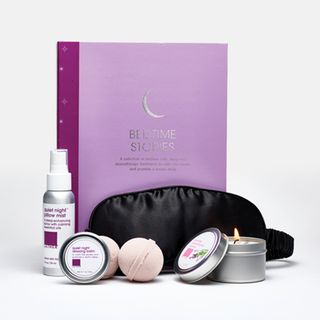
Less sleep equals less vigor when it comes to your immune system. To keep your health in tip-top shape this winter (cold weather be damned!), Finkelston recommends getting adequate rest and sleep each day. Seven to eight hours, she says, is optimal.
2. Don't Neglect Your Workouts
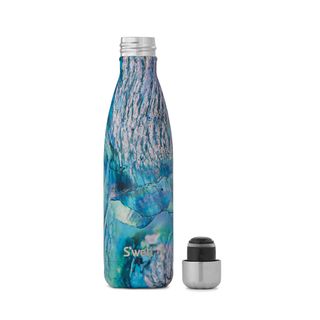
This one is pretty self-explanatory, but since this time of year we're more likely to reach for a second slice of pie and not our tennis shoes, Finkelston reminds us that a daily dose of movement is important for staying healthy and happy. Need some inspiration? These will be the top three fitness trends of 2019.
3. Load Up on Healthy and Vibrant Foods

"Aim to eat a healthy diet, low in processed foods and high in fresh vegetables and proteins," Finkelston advises. If you need some help getting started, or yearn for healthy food with optimum convenience, try a week of healthy food delivery from a brand like Sakara Life which puts your health front and center. (Psst: See my personal review here!)
4. Gargle Every Day
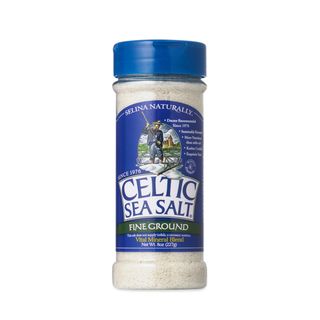
"If the three above solutions are already commonplace for you, then consider trying a few others that have scientific merit," suggests Finkelston. She recommends gargling with salt water at least three times a day in the winter months to decrease germs and in turn your chances of coming down with the common cold. Do it preemptively, before you start feeling the onset of cold symptoms.
5. Flood Yourself With Antioxidants and Immune Boosters
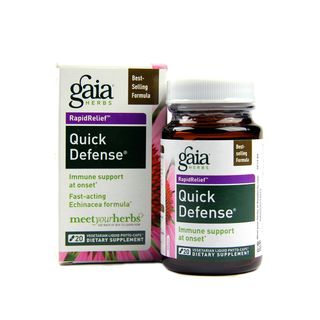
"Loading up with antioxidants daily, whether from foods (preferred) or supplements from a reputable
company, is another good suggestion," Finkelston adds. We like this blend from Gaia Herbs featuring a strategic blend of elderberry, echinacea, and giner—a true triple threat.
6. Try Vitamin D
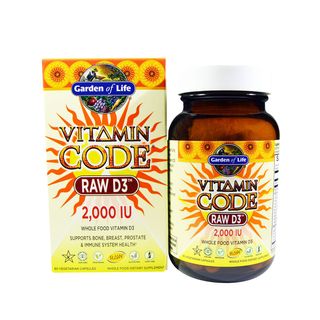
"Vitamin D3 may help boost your immune system, too, especially if you live in states farther north where there are fewer hours of daylight in the winter," explains Finkelston. "This is because as you're likely inside for most of daylight hours, there are naturally fewer opportunities to activate vitamin D synthesis in your skin."Next up: Here's Your December Wellness Horoscope
Disclaimer
This article is provided for informational purposes only and is not intended to be used in the place of advice of your physician or other medical professionals. You should always consult with your doctor or healthcare provider first with any health-related questions.
Erin has been writing a mix of beauty and wellness content for Who What Wear for over four years. Prior to that, she spent two and half years writing for Byrdie. She now calls Santa Monica home but grew up in Minnetonka, Minnesota, and studied writing, rhetoric, and communication at University of Wisconsin, La Crosse. She studied abroad in Galway, Ireland, and spent a summer in L.A. interning with the Byrdie and Who What Wear family. After graduating from UW, she spent one year in San Francisco, where she worked as a writer for Pottery Barn Kids and PBteen before moving down to L.A. to begin her career as a beauty editor. She considers her day-to-day beauty aesthetic very low-maintenance and relies on staples like clear brow serum (from Kimiko!), Lawless's Lip Plumping Mask in Cherry Vanilla, and an eyelash curler. For special occasions or days when she's taking more meetings or has an event, she'll wear anything and everything from Charlotte Tilbury (the foundations are game-changing), some shimmer on her lids (Stila and Róen do it best), and a few coats of the best mascara-type product on earth, Surratt's Noir Lash Tint.
-
 I Live for Yoga and Pilates—These Are the Pieces That Help My Flow
I Live for Yoga and Pilates—These Are the Pieces That Help My FlowTake notes.
By Humaa Hussain
-
 It's Time to Get Our Nutrition in Check for Summer—This App Is Making It Easy
It's Time to Get Our Nutrition in Check for Summer—This App Is Making It EasyThe recipe ideas are endless.
By Who What Wear
-
 If You're Battling With Digestive Issues, This Could Be Why
If You're Battling With Digestive Issues, This Could Be WhyTurns out, you may not have IBS after all.
By Kia Topps
-
 Our Editors Own a Lot of Sneakers, But This Pair Comes in First Place Every Time
Our Editors Own a Lot of Sneakers, But This Pair Comes in First Place Every TimeA major win.
By Aniyah Morinia
-
 I Changed My Mind About Strength Training When I Tried This Workout
I Changed My Mind About Strength Training When I Tried This WorkoutMy confidence is officially on 10.
By Kia Topps
-
 This Type of Gear Will Take Your Workout to the Next Level
This Type of Gear Will Take Your Workout to the Next LevelBring it on.
By Sarah Yang
-
 6 Essential Oils That Will Heal Your Painful Sunburns
6 Essential Oils That Will Heal Your Painful SunburnsAll-natural relief ahead.
By Samantha Parsons
-
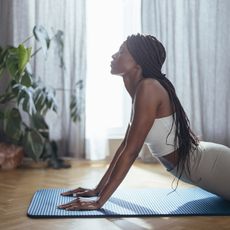 The Activewear Accessory That Can Change Your Yoga Practice
The Activewear Accessory That Can Change Your Yoga PracticeIt's so helpful.
By Sarah Yang

